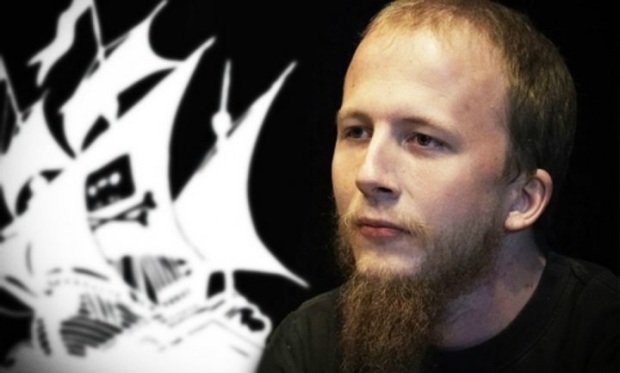Pirate Bay is online and playing a game of cat and mouse with IP regulators.
Pirate Bay co-founder Gottfrid Svartholm Warg was released from a Swedish prison Saturday, three years after he began serving time for a Danish hacking conspiracy and for Swedish copyright offenses connected to the file-sharing site, The Pirate Bay.
Warg hasn’t made any public comments following his release from Skanninge Prison in Sweden.
But his mother chimed in on Twitter. “Yes, #anakata is free now. No more need to call for #freeanakata. Thank you everyone for your important support during these three years!”
The Cryptosphere succinctly describes Warg’s legal run-ins:

His legal troubles began in 2008 and have continued, punctuated by convictions, appeals, extraditions and negotiations, essentially continuously since then. 2009 found him and his TPB co-founders ruled guilty of assisting copyright violations. The back-and-forth was punctuated by a surprise move by the defendant to Cambodia, and a subsequent even-more-surprising extradition therefrom (Cambodia has no extradition treaty with Sweden but there may have been inducements the cash-strapped Asian nation found impossible to resist).
Most recently, he was convicted in Denmark of what the prosecutor called “the largest hacking case to date,” penetrating servers belonging to CSC, an American company, and “liberating” Danish social security numbers, drivers licenses, and police emails, among other alarming things. Having successfully extradited him from Sweden for the case, the Danish prosecutor then promptly asked the judge to bar him from the country. He was then paradoxically handed back to Sweden to serve out the remainder of his sentence there. And now, he’s out.
Other Pirate Bay co-founders Peter Sunde and Fredrik Neij have served their time in connection to their affiliation with the notorious file-sharing site. Carl Lundstrom, the site’ financier, was sentenced to four months of electronic monitoring. Despite all the convictions, the site remains operational and is in the midst of a game of cat and mouse with regulators—often changing server locations and domains to keep afloat.
Source:https://arstechnica.com/

He is a well-known expert in mobile security and malware analysis. He studied Computer Science at NYU and started working as a cyber security analyst in 2003. He is actively working as an anti-malware expert. He also worked for security companies like Kaspersky Lab. His everyday job includes researching about new malware and cyber security incidents. Also he has deep level of knowledge in mobile security and mobile vulnerabilities.











